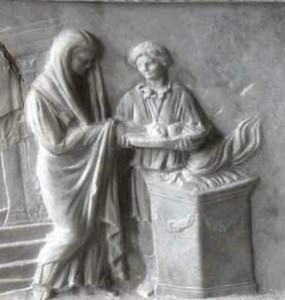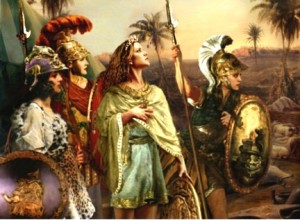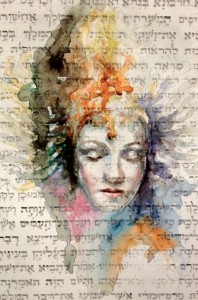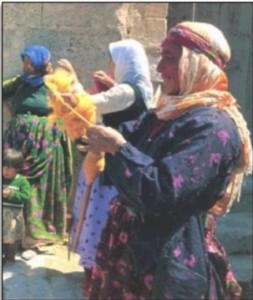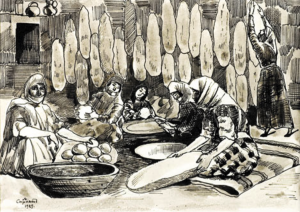 Image credit
Image credit
“A handful of the choice flour and oil of the meal offering shall be taken from it … and this choice portion shall be turned into smoke on the altar as a pleasing odor to the Lord.” Leviticus 6:8-9 (JPS translation)
In ancient Israel bread baking was predominately a woman’s activity. Within the household economy, women performed all the tasks of bread making from grain to final product. Since bread consumption provided the highest calorie content of the ancient Israelite diet and therefore was the most important food staple, the role of the baker was held in high esteem and wielded economic power. Continue reading Of Bread and Raisin Cakes

